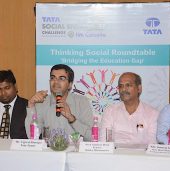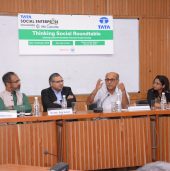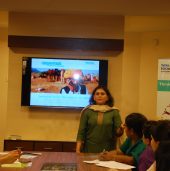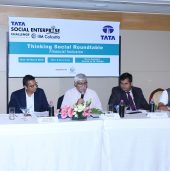30 November, 2015
1
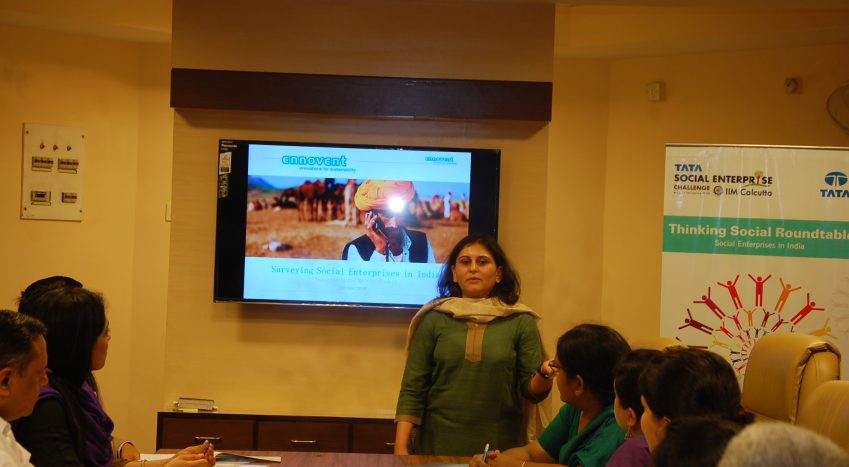
The second Roundtable of the “Thinking Social” series, organized by IIM Calcutta Innovation Park (IIMCIP) and Ennovent, was held on 30th November 2015 at the Indian Institute of Management, Kolkata under the aegis of Tata Social Enterprise Challenge (TSEC) 2015-16. The theme of the Roundtable was ‘”Social Enterprises in India”.
The British Council has commissioned a baseline study on the Social Enterprise Landscape in India, which is being conducted by Ennovent. The aim of the study is to provide a summary of the current size and scale of the social enterprise sector and give stakeholders a clear picture of the existing landscape and help them identify areas in which their support is most needed. The aim of the baseline study is to provide a summary of the current size and scale of the social enterprise sector in India. The survey will contribute to the improvement of the social enterprise ecosystem by obtaining currently unavailable numbers on various indicators, giving stakeholders a clear picture of the existing scenario and helping them identify areas in which their support is needed.
The objective of the roundtable was to disseminate the findings of the Landscape Survey of Social Enterprises in India captured through survey responses and interviews conducted so far, with a specific focus on East India. The audience mainly comprised of eminent social entrepreneurs, academicians and NGOs mainly from the Eastern part of the country.
The discussion was initiated by Juhi from Ennovent who shared with the audience the findings of the survey which they had conducted. The following points were discussed:
Distribution of Social Enterprises by State
The panel discussed that a lot of innovative business models exist at the ground level but they often go unnoticed because they do not have access to communication services like the internet. They also decided to do a search on the operational presence of SEs and conduct the survey in regional languages.
Distribution of Social Enterprises by Sector
The panel decided that methodology of framing sectors need more work as there are alot of activities which were not talked about. It was also pointed out that there should be a break up of skill development activities into non-farm livelihood and non-traditional livelihood.
Barriers to growth and Funding Challenges
Discussions took place regarding the lack of skilled manpower and training institutes is the biggest challenge for social enterprises. Also, there needs to be a more focussed sectorial analysis which needs to be carried out so that it gives us the dta about the most emerging areas in the SE space.
Feedback on the Study Report and Analysis
The survey should add an option of Lack of Training and Skill development institutes under the barriers to growth. It should also remove Micro Finance Institutes from the database. A proper definition about Social Enterprise must be formulated which would define the enterprise as a business which aims to be financially viable and creates an impact for the people at the BOP.
Apply Now
